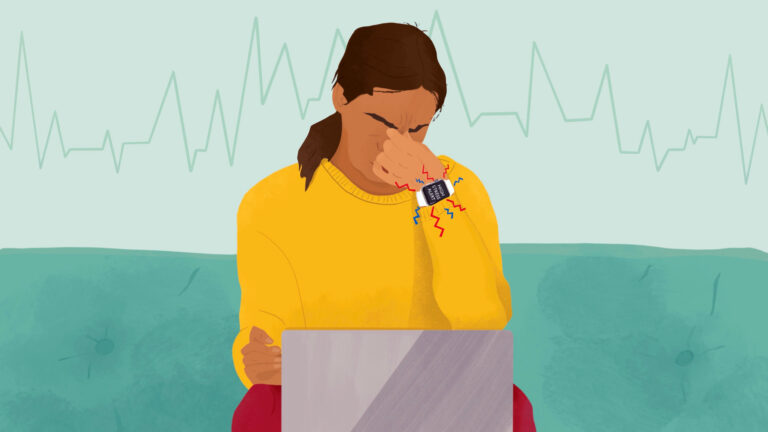Fitness education wants in on the wellness boom.
Fitting In
Along with the broader industry, the pandemic has been a whirlwind for fitness professionals.
After pivoting to digital or remote coaching during lockdowns, many trainers saw their jobs disappear as ~25% of all US gyms/studios closed for good.
Adapting in real time, new business models emerged, creating challenges and opportunities for serving clients.
Creators. Like filmmakers on YouTube or Substack writers, fitness professionals were thought to be the latest entrants into the billion-dollar creator economy. While some have succeeded in building loyal followings and massive businesses, the fitness creator’s rise has largely stalled.
Celebrities. For a smaller subset of trainers, the digital and connected fitness boom fueled demand for A-list trainers. As the talent wars rage on, some instructors will strive for a spot at Peloton while others opt for social media stardom.
Hybrid. With exercise seekers varying workouts between at-home, outdoor, and IRL, coaches have to meet clients where and how they want to sweat. But, trainers still struggle to engage members beyond the four walls of a gym or outside of a 60-minute session.
Credentials. A problem we’ve previously detailed, fitness credentials haven’t evolved with the rest of the industry. Because aspiring trainers simply buy a book and take a test, the certification is quickly becoming devalued.
Pivot to Wellness
As gyms/studios get back on their feet, some operators believe trainers will play a pivotal role in their recovery.
- Life Time: The company is investing in personal training, with sales numbers on pace to top 2019 levels.
- Equinox: The labor market is tight, but the brand is “managing through” pressure to attract personal training talent.
- Les Mills US: The company’s global fitness report found that “Rockstar Instructors” are the single most important factor for gym-goers when choosing a class.
With a renewed emphasis on hiring, the US personal training market is set to tick up this year, reaching $12.3B. Gaining steam, the field is expected to grow 19% over the next decade, adding nearly 60K jobs.
At the same time, as wellness expands, personal training is evolving.
- Mental/emotional well-being (78%) has overtaken physical fitness (76%) as the top reason for exercising, per Mintel.
- Reducing stress and feeling better mentally tied (43%) as the top reason for exercising, per Mindbody.
- According to personal training app Future, 94% of members talk to their coach about nutrition, stress, sleep, and injury.
Nothing new, trainers have always worn multiple hats for their clients — talking nutrition, stress management, and life outside the gym. In fact, most trainers will tell you they’re often more of a therapist than a coach.
Making it official, certification providers want to capitalize on this trend, effectively tapping into the $8.8B health coaching market.
NASM. The National Academy of Sports Medicine now offers coursework to become a Certified Wellness Coach. According to president Laurie McCartney, the pillars include movement, nutrition, mental and emotional well-being, and more.
ACE. After launching an advanced health coaching program last year, the American Council on Exercise recently acquired Dr. Sears Wellness Institute, pushing further into health coaching.
ISSA. Last year, PE firm Tailwind Capital bought the International Sports Sciences Association. Now, the company is rolling out three health coaching programs, addressing areas like nutrition, behavior change, and recovery.
But… While it’s true that offering additional services could attract new clients and boost earning potential, these new credentials follow the same flawed format as the personal training checkbox.
Looking ahead: As Future CEO Rishi Mandal sees it, there’s an opportunity to surround people with a “constellation of experts” to support their well-being. Similarly, Silofit CEO Wilfred Valenta said: “trainers will become a part of your inner support circle made up of physicians, psychologists, and dietitians.”
To that end, like the convergence of fitness and wellness, the integration of health coaching and healthcare could redefine the future of personal training.
💪 Welcoming its third CEO since 2020, CrossFit’s getting back in shape
Each year, CrossFit crowns the fittest man and woman on Earth. But the future of its business might depend on the everyday exerciser.
On the Fitt Insider Podcast: CrossFit’s new CEO Don Faul discusses his strategy for accelerated growth.
We also cover: Don’s path to the chief executive role and why changing the brand’s perception matters.
Listen to today’s episode here
📱 Amazon launches new message-based virtual care service
The latest: The tech giant launched Amazon Clinic, a message-based healthcare service providing treatment for 20+ common conditions.
Working with licensed physicians in 32 states and leveraging Amazon Pharmacy, Clinic offers care for acne, erectile dysfunction, women’s health, and STIs. It also refills existing prescriptions for high cholesterol, high blood pressure, migraines, and more.
How we got here: Amazon has been iterating on a healthcare strategy for years, acquiring online pharmacy PillPack in 2018 and piloting a primary care network called Amazon Care in 2019.
But, this year has been busier than most.
- February: Extended Amazon Care nationwide, focusing on corporate employees
- July: Acquired telehealth primary care provider One Medical for $3.9B
- August: Announced disbanding of Amazon Care, effective EOY
What it means: After fits and starts, Amazon sees consumer healthcare as an easier path than corporate telehealth. A complementary service to its One Medical and Amazon Pharmacy businesses, Clinic will seek to one-up the convenience factor of new rivals hims & hers and Thirty Madison.
Punchline: A retailer at heart, Amazon Clinic will largely be another product business — dispensing quick-fix pharma for sensitive, but relatively minor, health issues. With its ecosystem a constant work-in-progress, an integrated offering for better health still seems far off.
Share this headline
👀 With gym visits climbing, brick-and-mortar operators are eyeing expansion
By the numbers: After revenues cratered to less than $15B in 2020, the market for gyms and studios is expected to reach $32B this year.
- Gym visits rose 18% from March through August vs. the same period in 2019, with new memberships rates also topping pre-pandemic figures.
- Sales per square foot (a measure of efficiency, especially for big-box gyms) are up 34% from 2021 and about even with 2019.
- New fitness centers accounted for 4.5M sq. ft. in Q1’22 (up from ~2M in Q4’22) and are the fastest-growing segment of retailer, per CBRE.
Deal-making. Taking notice, landlords are once again courting fitness tenants for malls and shopping centers. Taking full advantage, well-capitalized brands are branching out.
- Retail. Per Credintell, retailers in a shopping center with a gym attract 2.5% more monthly visitors than the same retailer’s locations in centers without one. Retail-targeted expansions from Crunch, UFC GYM, and World Gym are underway.
- Hospitality. A Hilton survey showed 98% of US travelers are prioritizing wellness activities while traveling. Finding new venues, Xponential will put studios aboard Princess Cruises and install functional training spaces in hotels and offices.
- Living. Life Time said inbound interest from developers has fueled new openings. After unveiling its second fitness community, it plans to open 13 clubs next year.
Takeaway: Riding momentum into the new year, gyms hope the gains keep coming. With at-home workouts remaining popular and the majority of people not exercising at all, there’s plenty of room for growth.
💼 WHOOP, ŌURA, Eight Sleep hire top execs
Personnel files. Filling key roles in the C-suite, three recovery-focused companies are strengthening their teams.
- Smart ring maker ŌURA hired Doug Sweeny as chief marketing officer and Lina Alcala as chief people officer, while promoting Holly Shelton to chief product officer.
- Wearable tech company WHOOP added chief technology officer Jaime Waydo and chief medical officer Dr. Patrick Carroll.
- Smart mattress brand Eight Sleep appointed Peloton’s former chief sales officer Tim Shannehan as its chief revenue officer.
Job hunt: If you’re looking for a new gig, look no further. Fitt Jobs has hundreds of openings from leading health and fitness companies, curated and waiting for you. Here are a few newly added roles:
- Outdoor activity platform AllTrails is searching for a Dir of Business Ops.
- Redesign Health needs a CEO for a stealth neurodegeneration portfolio co.
- Women’s and family health clinic Maven is hiring a VP of Clinical Innovation.
Btw… We’re also hiring a Lead Reporter to join the Fitt Insider team!
📰 News & Notes
- Connected fitness startup FORME files for IPO.
- Digital MSK platform SWORD moves into fitness.
- Twitter’s verification turmoil tanked Eli Lilly’s stock.
- Google launches health data interoperability app for Android.
- Season Health, Territory Foods partner on food-as-medicine meals.
- WHOOP digs into research, identifies biomarker for premature births.
- Startup Q&A: Plantiga CEO Quin Sandler on smart insoles for injury prevention.
💰 Money Moves
- Athletic Brewing, a nonalcoholic craft brewer, raised $75M in a Series D round from Keurig Dr Pepper and others.
- Maven Clinic, a digital clinic for women’s and family health, raised $90M in a Series E round led by General Catalyst.
- Wesper, an at-home sleep therapy platform, raised $7.5M in a Series A round.
- Sports nutrition brand Honey Stinger raised $15M in a funding round.
- Sparkling mineral water and yaupon drink brand Rambler added $11.6M in a funding round.
More from Fitt Insider: Liquid Gold - WellTheory, a digital platform using root cause medicine to reverse autoimmune diseases, raised $7.2M in a seed round led by Accel.
- Holo, a sustainable outdoor shoe brand, closed a $5M Series A round.
- Liti, a Brazilian digital weight loss platform, secured $4M in a seed round.
More from Fitt Insider: Weight of the World - Polaris Genomics, a biotech company focused on treating PTSD, received $1.25M from the US Air Force.
- Proper Good, a better-for-you prepared foods brand, secured $3.5M in a seed round co-led by YETI Capital and The Artisan Group.
- Skincare brand Peace Out landed a $20M investment from 5th Century Partners.
- Topicals, a skincare line for those with chronic skin conditions, raised $10M in a Series A round led by CAVU Consumer Partners.
- Augustinus Bader, maker of anti-aging skin creams, secured $25M in a funding round co-led by Impala and General Atlantic.
- Consumer brands platform Heyday acquired ZitSticka, maker of acne patches.
- Upliv, a telemedicine platform for menopausal care, launched after raising $8.4M from Northwell Holdings and Aegis Ventures.
- Something & Nothing, a UK-based maker of low- and no-alcohol seltzers, raised £2.5M ($2.9M) in new funding.
Today’s newsletter was brought to you by Anthony Vennare, Joe Vennare, and Ryan Deer.






